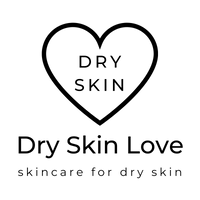The skin's acid mantle describes the inherent acidic nature of the outer skin barrier.
The pH of the skin barrier is slightly acidic, in the range 4.5 to 6.5.
Maintaining skin pH is important, as skin pH influences your skin barrier function, the shedding of skin cells and protection against bad bacteria.
A proper skin pH is important to maintain healthy skin.
So how do you protect your skin's acid mantle?
This article will discuss:
- What is the skin's acid mantle?
- Why is the skin's acid mantle important?
- Skin pH maintains skin barrier
- Skin pH protects against bad bacteria
- How to protect your skin's acid mantle
- Avoid high pH soaps
- Use a gentle cleanser
- Try an oil cleanser
- Summary
- References

What is the skin's acid mantle?
The skin's acid mantle is a part of your skin barrier.
The term "acid mantle" describes the inherent acidic nature of the outer skin barrier, or stratum corneum.
The pH of the skin is slightly acidic, in the range 4.5 to 6.5.
The low pH level is maintained by fatty acids, sebum and sweat (Schmid-Wendtner et al, 2006).
Learn more: What is The Skin's Acid Mantle?

Why is the skin's acid mantle important?
Maintaining skin pH is important, as skin pH influences skin barrier homeostasis, stratum corneum integrity and cohesion, and antimicrobial defense mechanisms.
Your skin pH influences:
- Skin barrier function.
- Desquamation or shedding of skin cells.
- Protection against pathogens "bad bacteria."
(Reviewed by Ali et al, 2013).
Skin pH maintains skin barrier
Several key enzymes involved in the synthesis and maintenance of the skin barrier are largely impacted by pH, especially with respect to its lipophilic components and its destruction by desquamation. These hydrolases include -glucocerebrosidase, acid sphingomyelinase, acid lipases, phosphatases and phospholipases (Schmid-Wendtner et al, 2006).
For instance, the enzyme glucocerebrosidase with an optimum pH of 5.6 is involved in the synthesis of the most important ceramides (Schmid-Wendtner et al, 2006).
Ceramides are fats or lipids that are found in skin cells. They make up 30% to 40% of your outer skin layer, or epidermis. Ceramides are important for retaining your skin’s moisture and keeping your skin barrier healthy.
Skin pH protects against bad bacteria
For the skin's antimicrobial defense, there is an association between a lower pH level and reduced expression of bacteria proteins, in particular, those involved in adherence to the skin by bacteria Staphylococcus aureus (e.g., protein A, clumping factor B, fibronectin-binding protein A) (Leung et al, 2013).
High Staphylococcus aureus colonization rate is shown in children and adults with atopic dermatitis (eczema). Colonization rate increases with the severity of the atopic dermatitis, and it acts as an aggravating factor exacerbating inflammation (Ogonowska et al, 2021).
Changes in the pH level toward more alkaline are one of the factors, facilitating Staphylococcus aureus colonization and growth in patients with atopic dermatitis (eczema) (O'Regan et al, 2008; Proksch et al, 2008; Clausen et al, 2019).
A higher skin pH 7.0–8.0 has been shown optimal for Staphylococcus aureus sticking to human skin cells (Mempel et al, 1998).

How to protect your skin's acid mantle
Many factors can affect the pH of the skin, including aging, sebum, sweat, soaps, detergents, cosmetics, and irritation (Ali et al, 2013; Yosipovitch et al, 1996).
Even rinsing your skin with water alone produces an immediate but transient increase in its pH (Gfatter et al, 1997).
How to protect your skin's acid mantle:
- Avoid high pH soaps
- Use a gentle cleanser
- Try an oil cleanser

1. Avoid high pH soap
Soap is one of the most popular cleansers.
However, high pH soap can irritate and damage your skin barrier.
Soaps typically have a high pH of 9-10, and soap can disrupt the skin barrier.
The pH of the skin is generally in the range 4.5 to 6.5.
The high pH of soap causes swelling of the stratum corneum, which allows unwanted deeper penetration of the soap into the skin possibly causing irritation and itching (Prottey et al, 1975).
Soap can also bind to proteins in your skin barrier, further inducing swelling and hyper hydration of the skin. Following the completion of washing, the excess water evaporates leading to skin tightness and dryness because the soap binding reduces the ability of the skin proteins to hold water. This explains the reduction in skin hydration and elasticity following soap cleansing (Draelos et al, 2018).
Learn more: The Problem with Soap for Cleansing Dry Skin
Soap should be replaced with low pH syndet bars, or other gentle cleansers that can preserve your skin barrier.

2. Use a gentle cleanser
There are many different types of cleansers that are beneficial for dry skin.
For daily cleansing, there are many options, including syndets, cold creams, cleansing milks, cleansing oils, cleansing balms, micellar water and non-foaming cleansers.
For removing heavy make-up and sunscreens, cleansing balms and cleansing oils are the best choice.
These cleansers can all be great choices for dry skin, depending on your preferred texture and after-feel.
Soaps and cleansers that are high in pH should be avoided, as high pH soaps can be irritating and disrupt the skin barrier.
Learn more: 8 Types of Face Cleansers - Which Are Best for Cleansing Dry Skin?

3. Try an oil cleanser
Oil cleansers are soap-less cleansers that are composed of oils.
An oil cleanser is made from plant-based oils, and may also include mineral oils, animal-based oils, and/or esters.
A simple oil cleanser may be composed of a single plant oil, whereas a more complex oil cleanser may contain several plant oils, as well as extracts, actives and aroma compounds.
Different plant oils have different properties, including textures, aromas, colors, skin feel, nutrient profiles and benefits.
What is oil cleansing?
The oil cleansing method is a technique used to clean your face using oils. It works according to the principle of "like attracts like" as the oils help lift and remove daily sebum and oil build up, dirt and skin debris.
Oil cleansing is very effective for gently removing oil-based and waterproof cosmetics, and sunscreens that cannot be easily removed with soap and water.
The oil cleansing method is effective for cleansing skin and is safe to use daily.
The oil cleansing method will not clog pores if the correct oil cleanser is used.
Learn more: What is Oil Cleansing?
Summary
The term "acid mantle" describes the inherent acidic nature of the outer skin barrier, or stratum corneum.
The pH of the skin barrier is slightly acidic, in the range 4.5 to 6.5.
Your skin pH influences:
- Skin barrier function.
- Desquamation or shedding of skin cells.
- Protection against pathogens "bad bacteria."
Many factors can affect the pH of the skin, including aging, sebum, sweat, detergents, cosmetics, and irritation.
Soaps and cleansers that are high in pH should be avoided, as high pH soaps can irritate and disrupt the skin barrier.
To protect your skin's acid mantle:
- Avoid high pH soaps.
- Use a gentle cleanser.
- Try an oil cleanser.
Maintaining skin pH is important, as skin pH influences skin barrier homeostasis, stratum corneum integrity and cohesion, and antimicrobial defense mechanisms.
A proper skin pH is important to maintain healthy skin.
References
Ali SM, Yosipovitch G. Skin pH: from basic science to basic skin care. Acta Derm Venereol 2013; 93: 261–267.
Clausen M. L., Edslev S. M., Nørreslet L. B., Sørensen J. A., Andersen P. S., Agner T. (2019). Temporal variation of Staphylococcus aureus clonal complexes in atopic dermatitis: a follow-up study. Br. J. Dermatol. 180 181–186.
Draelos ZD. The science behind skin care: cleansers. J Cosmet Dermatol. 2018 Feb;17(1):8-14.
Gfatter R, Hackl P, Braun F. Effects of soap and detergents on skin surface pH, stratum corneum hydration and fat content in infants. Dermatology 1997; 195: 258–262.
Ishikawa J, Yoshida H, Ito S, Naoe A, Fujimura T, Kitahara T, Takema Y, Zerweck C, Grove GL. Dry skin in the winter is related to the ceramide profile in the stratum corneum and can be improved by treatment with a Eucalyptus extract. J Cosmet Dermatol. 2013 Mar;12(1):3-11.
Leung D. Y. M. (2013). New Insights into atopic dermatitis: role of skin barrier and immune dysregulation. Allergol. Int. 62 151–161.
Mempel M., Schmidt T., Weidinger S., Schnopp C., Ring J., Abeck D., et al. (1998). Role of Staphylococcus aureus surface-associated proteins in the attachment to cultured HaCaT keratinocytes in a new adhesion assay. J. Invest. Dermatol. 111 452–456.
Ogonowska P, Gilaberte Y, Barańska-Rybak W, Nakonieczna J. Colonization With Staphylococcus aureus in Atopic Dermatitis Patients: Attempts to Reveal the Unknown. Front Microbiol. 2021 Jan 11;11:567090.
O’Regan G. M., Irvine A. D. (2008). The role of filaggrin loss-of-function mutations in atopic dermatitis. Curr. Opin. Allergy Clin. Immunol. 8 406–410.
Proksch E., Brandner J. M., Jensen J. M. (2008). The skin: an indispensable barrier. Exp. Dermatol. 17 1063–1072.
Prottey C, Ferguson T. Factors which determine the skin irritation potential of soaps and detergents. J Soc Cosmetic Sci. 1975;26:29- 46.
Schmid-Wendtner MH, Korting HC. The pH of the skin surface and its impact on the barrier function. Skin Pharmacol Physiol. 2006;19(6):296-302.
Yosipovitch G, Maibach HI. Skin surface pH: a protective acid mantle. Cosmet Toiletries 1996; 111: 101–112.
Author Information

Dr. Natasha Ryz is the founder of Dry Skin Love Skincare. With over 10 years of experience as a formulator and a strong scientific foundation, Dr. Ryz creates products that combine the best of nature and science for transformative results.
She trained in Organic Skincare Formulation at Formula Botanica and took the Skincare Specialist Program at the School of Natural Skincare, with over 200 hours of specialized education. Dr. Ryz also holds a diploma in Beauty Brand Business Management.
Dr. Ryz’s scientific background includes a PhD in Experimental Medicine from the University of British Columbia, and she has over 15 years of research experience in microbiology, immunology, and biochemistry. This expertise informs every product she formulates, ensuring exceptional quality, efficacy, and luxury.
Why I Started A Skincare Company

